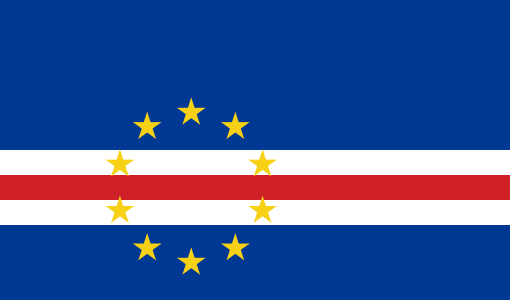 While the celebrations have passed for American Independence Day, in Cape Verde and its diaspora, which has a significant representation in Rhode Island, the party has just begun. July 5th and 6th mark the fortieth anniversary of the independence of Cape Verde from Portuguese colonialism and the foundation of the Republic. This anniversary is particularly impressive because it occurs in close temporal proximity to the end of the American presence in Vietnam, symbolic of what was a series of major victories for the anti-colonialist struggle in the developing world and a high point in the foreign policy of the Soviet Union, Cuba, and the People’s Republic of China.
While the celebrations have passed for American Independence Day, in Cape Verde and its diaspora, which has a significant representation in Rhode Island, the party has just begun. July 5th and 6th mark the fortieth anniversary of the independence of Cape Verde from Portuguese colonialism and the foundation of the Republic. This anniversary is particularly impressive because it occurs in close temporal proximity to the end of the American presence in Vietnam, symbolic of what was a series of major victories for the anti-colonialist struggle in the developing world and a high point in the foreign policy of the Soviet Union, Cuba, and the People’s Republic of China.
The islands, called Cabo Verde in Lusophone dialect, were discovered by Portuguese colonist Alvise Cadamosto and established as a permanent holding of the Empire in 1462. As an archipelago off the western coast of continental Africa, it was a major hub in the transport of human beings captured in the trans-Atlantic slave trade. After the Portuguese abolished slavery in 1869, Cape Verde continued to be held as a colony by the Empire and an exodus of immigrants began, creating a diaspora with population centers in New England.
Beginning in 1956 with the foundation of the PAIGC (Partido Africano da Independência da Guiné e Cabo Verde/African Party for the Independence of Guinea and Cape Verde) by Amílcar Cabral, his brother Luís, Aristides Pereira, Fernando Fortes, Júlio Almeida and Elisée Turpin, the colonized peoples engaged in a multi-decade anti-colonialist struggle that included the fight for Cape Verde and Guinea Bissau but also embraced a continent-wide struggle for freedom, such support for the anti-apartheid movement in South Africa. After Amílcar Cabral visited Cuba in 1966, Fidel Castro volunteered military advisors and doctors, while the USSR and China provided rifles and military training. This chain of events coincided with American efforts in Indochina, so the military support given the Portuguese, led by the Fascist junta of Antonio Salazar, was particularly brutal and featured napalm and other materiel being used in Asia. It was the philosopher Frantz Fanon who wrote in his classic THE WRETCHED OF THE EARTH:
National liberation, national renaissance, the restoration of nationhood to the people, commonwealth: whatever may be the headings used or the new formulas introduced, decolonization is always a violent phenomenon… Decolonization, which sets out to change the order of the world, is, obviously, a program of complete disorder. But it cannot come as a result of magical practices, nor of a natural shock, nor of a friendly understanding. Decolonization, as we know, is a historical process: that is to say that it cannot be understood, it cannot become intelligible nor clear to itself except in the exact measure that we can discern the movements which give it historical form and content. Decolonization is the meeting of two forces, opposed to each other by their very nature, which in fact owe their originality to that sort of substantification which results from and is nourished by the situation in the colonies. Their first encounter was marked by violence and their existence together—that is to say the exploitation of the native by the settler—was carried on by dint of a great array of bayonets and cannons.
Amílcar Cabral was assassinated in 1973 by the Portuguese in an effort that was attempting to ultimately foil the resistance movement. But despite this setback, it proved to be impossible to hold back the forces of change. Following a revolt in Portugal that unseated the Salazar regime, the new government engaged in direct negotiations with the anti-colonial militias, resulting in the foundation of an independent Cabo Verde in July 1975, just several months after the fall of Saigon and America’s evacuation from Vietnam.
Every commemoration, however, must contain within it a lesson for today. It is very simplistic to merely re-tell a history and not include some lessons. First, of course, there is a great deal of inspiration to be gleaned from the achievements of Cape Verdeans in our midst. The diaspora has provided us with a slew of notable figures who have made great strides despite the power of racism and structural discrimination in out society. Second, there is the demonstration that the people, united, will never be defeated. Today we face struggles that, in many ways, are much more astounding than the challenge of twentieth century decolonization, be it at home or abroad. But despite these challenges, it seems apparent that they can and ultimately always will fall to the power of the people. It might take time, but it does happen. And finally, consider one of the famous line of Amílcar Cabral: “Tell no lies, claim no easy victories.” It is very easy to do what is acceptable and serves the powerful. It is much more difficult to take the road of genuine scholarship, speaking truth to power, and challenging those who would exchange you riches for your soul. Only with adherence to the truth and solidarity with the facts will true change come in the world.
7/6, 4:35 PM: I could not resist adding this stellar hip-hop single by Agent of Change, truly great music.

